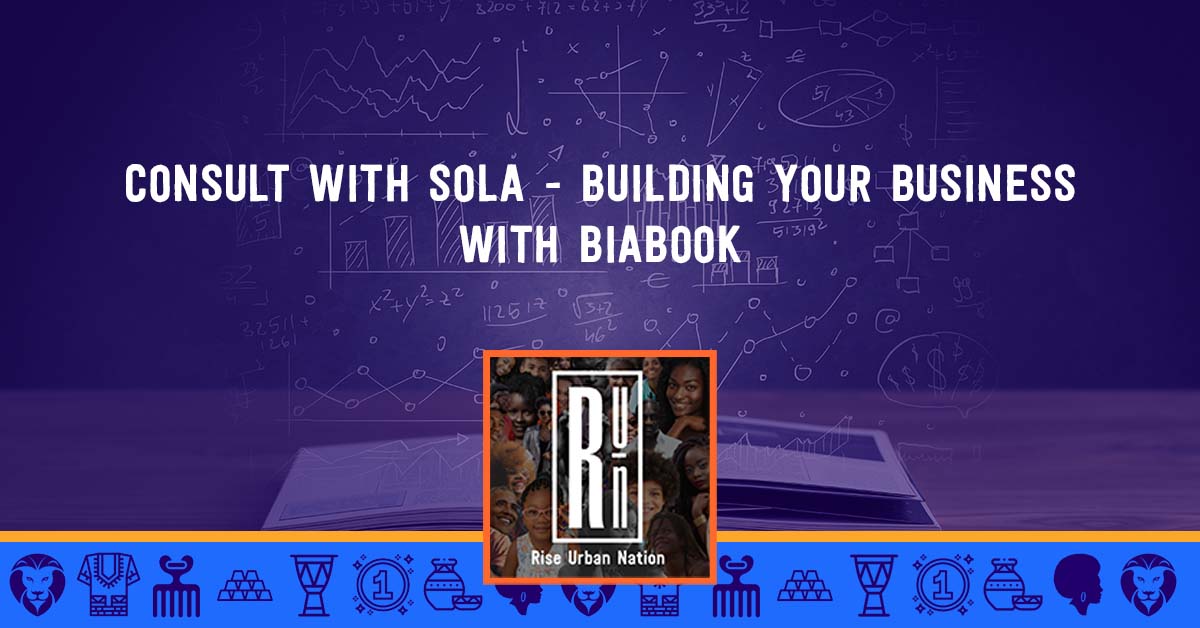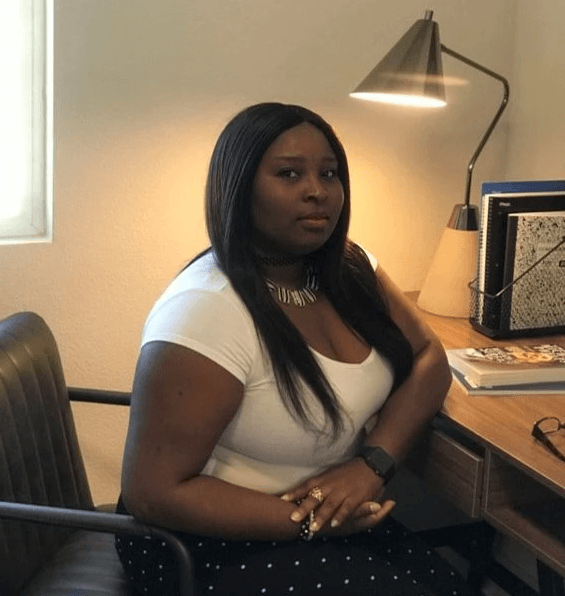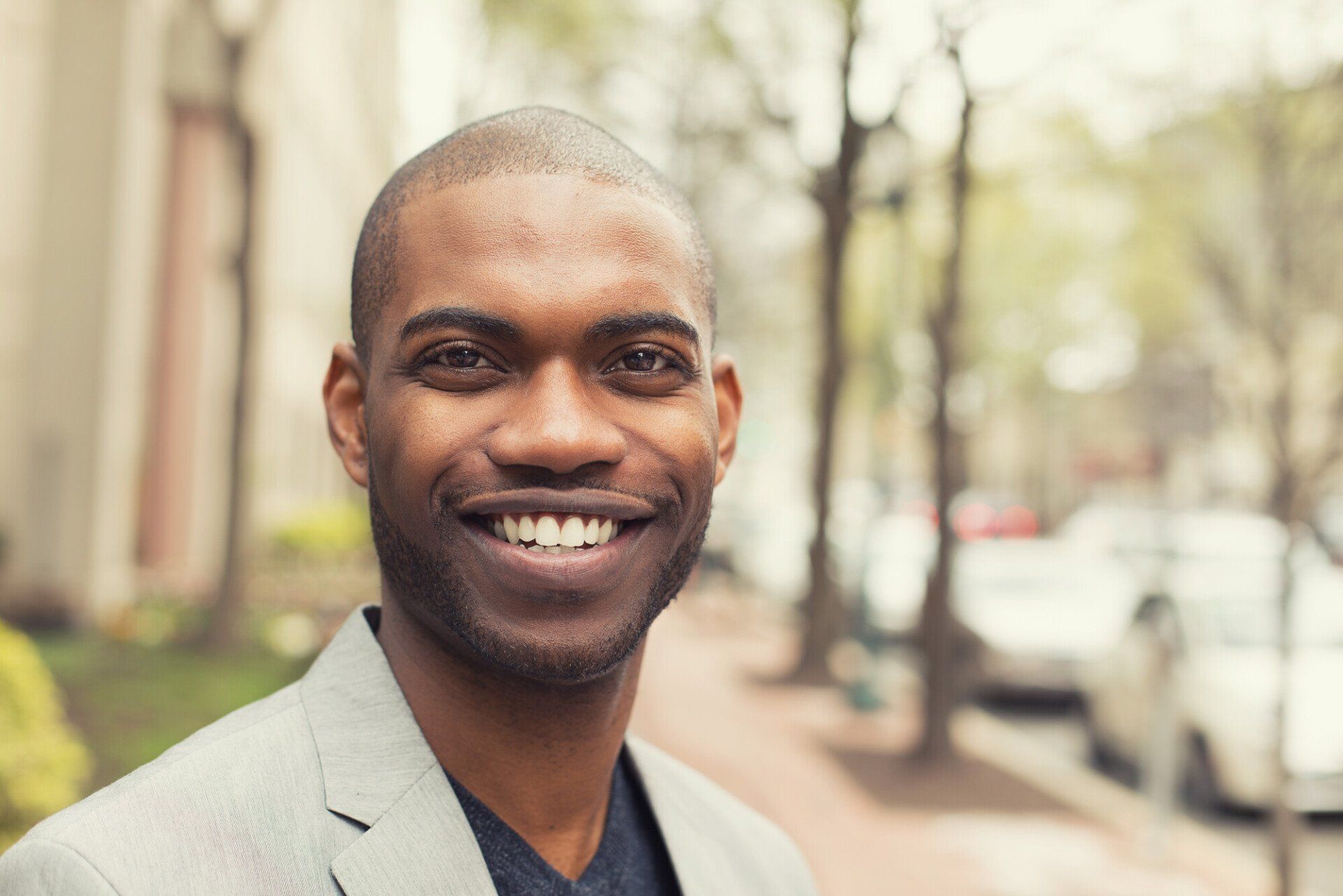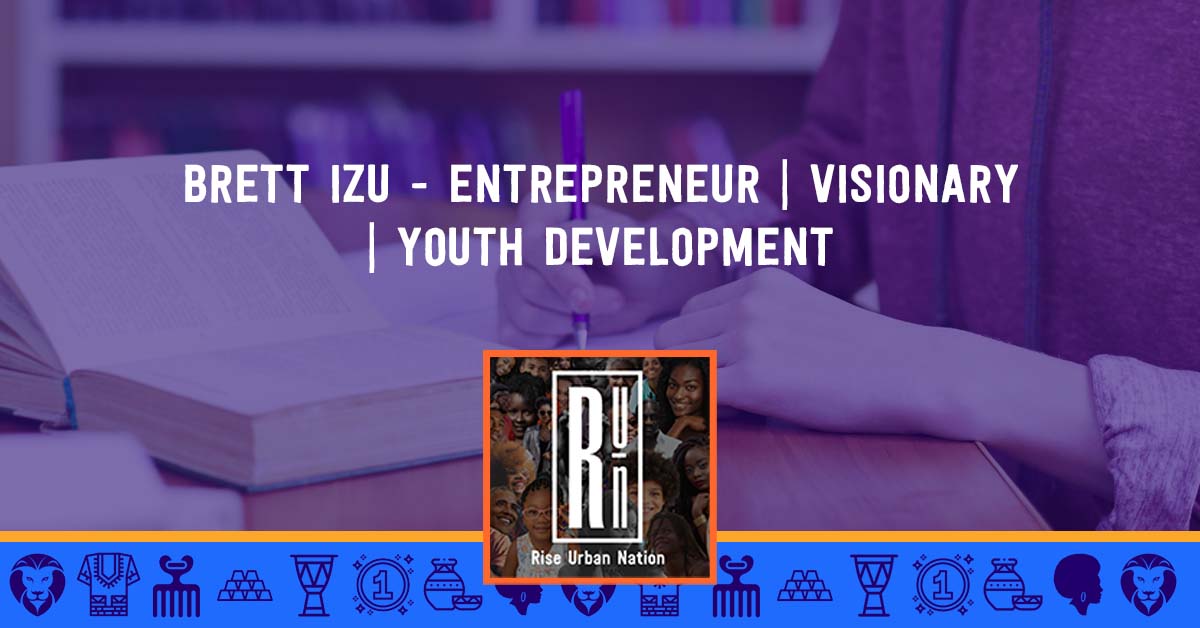Consult With Sola - Building Your Business With Biabook

Don’t you wish there’s just one clear manual to building your business? Biabook, Business in a book, was birthed from the Biabox program developed by Adesola Akindele to help guide her mentees. After helping aspiring entrepreneurs to start their businesses, she realized tracking their progress and keeping them focused and motivated was tricky. From her experience, Sola saw that many needed guidance on cultivating self-awareness and emotional intelligence. Listen in as Sola shares with Taryell Simmons how she developed her skills, held herself accountable, and tracked her progress over the years through Biabook.
Biabook Website: www.biabook.com
Biabook Digital Edition Risepreneurs 50% off Discount Code: RISEWITHBIABOOK
0-2-1 Consulting: http://www.adesolaakindele.com/work-with-me
We are currently surveying our listeners (or viewers) to learn more about you. Please take a few minutes and visit our website and click on the 'Listener Survey' link found on the home page. Thank you.
---
Listen to the podcast here:
Consult With Sola - Building Your Business With Biabook
As I promised, we brought Sola back in and I told you she was here from time to time. Sola and I were talking about how this is the top of the year, the beginning of the year. We have that New Year's resolution of, “New Year. New You,” and all the different things that come with the new year. Some of us might have taken a step back from doing resolutions but knew that we wanted to do something differently. 2020 COVID has taught us that you have to have something to pipeline. If you have been sitting on the idea for some time, maybe now is that time to work and grow that idea.
We often do workshops with REC, Regional Entrepreneur Center out here in San Diego, one of the things we were talking about was to coach, work with other startups and young entrepreneurs to do workshops, some coaching tips and tricks from things that we have learned along the way. One thing that was coming up was building your brand and business. In this episode, we will dive into a little bit of that, some of the common questions, themes and so forth.
I'm grateful and happy that Sola has allowed us to pick her brain for a little bit and not charge us too much for it. It’s a brief insight into that to help you build your brand and business. If you need further info, definitely reach out to her. She's a wealth of knowledge and information. I'm pretty sure she's willing to help any of those individuals who want to take their brand-new business to the next level. Without further ado, let's talk about building your brand, your business with Sola.
---
We’ve got Sola in the building. We are going to do these monthly sessions of Sola. We will call it Consulting 101 with Sola but I'm not saying you will get the full consult but we get to pick her brain for a little bit. If you want full and undivided attention with Sola, you have to go find her and get her consulting service. She's amazing. We are going to start this New Year episode with our monthly check-in consulting with Sola, Consulting 101 with Sola, by talking about building your brand and business. Welcome, Sola. How are you?
I am good. Thank you for having me here. I'm excited to give you guys some training. Hopefully, this helped you get your year wind up and started the right way as well. Thank you for having me.
No problem. Sola and her background, you will know how organized this woman is. She’s got sticky notes all on the wall. She got ideas and it looks like a whole little mind map going on her back wall. Building your brand and business. I want to get into something that you have created that will help because I know a lot of readers out here are trying to start the new year right with building their brand, their business. Your Biabook dives into this because you talk about you, your idea, and your brand.
One interesting thing that I want you to talk about before we dive into some of the concepts of your Biabook is the holistic approach to entrepreneurship. Why do you say, “The holistic approach to entrepreneurship?” This is something new that I don't think I have heard before anywhere else. What does that mean?
I'm going to give you a brief description of Biabook. It's about the overall well-being of an entrepreneur as they embark on their entrepreneurship journey. Being an entrepreneur isn't about having an idea and executing it. There's so much more to it. There's so much more that you become by taking that step and making that decision to put everything into something that no one has seen or might not even believe in to make it a success.
Your wellness and wellbeing have to be on the forefront when you start your entrepreneurship.
I'm writing another book. There’s an extended level of psychosis that you get to as an entrepreneur, especially when things are not going the way you want or reach a sale grade, or there's a massive hurdle on your wall. Most entrepreneurs usually feel this, especially when they are trying to raise capital. The whole thing about this book is, number one, you need support.
Throughout my book, we have something called a mentor and self-awareness emotional intelligence checkpoint. You need to do that. You need to have a mentor to guide you through the steps and hold you accountable. The way I want people to see entrepreneurship is not a pathway to me becoming a successful person, it's the whole thing, what it does to you as a person, how it makes you grow.
For me, entrepreneurship was my vehicle for growth, for mental wellness. It pushed me to the brink of so much but I'm still here. It's like, “I have gone through the worst already. I'm not afraid of anything anymore.” That's what I want people to understand. There's a wall picture when it comes to entrepreneurship aside from the whole standard process that you have to go through to become an entrepreneur.
That whole living as an entrepreneur, being an entrepreneur, speaking like one, becoming someone that gives back once you reach a certain point, that's a whole view. That's a holistic view. It's all about wellness and your well-being and that has to be at the forefront when you start your entrepreneurship journey.
I liked that when you said that. When you said it, it made me remind myself. I'm starting to work out. Speaking of a holistic view, it’s when you exercise a muscle. When you take it to that breaking point, it heals, restores, and gets stronger. How you get stronger as an entrepreneur is by having that holistic view. I see your first chapters and exercises about you.
It’s everything from self-awareness, social awareness, self-management. Dive into that, why did you decide to focus on the person, individual when making this book, talking about your brand and building your business? Why start there? What was the mindset behind that and how did you come up with that vision and concept?
I realized that I was on a different journey. Simultaneously as I was an entrepreneur, I own my businesses, running my businesses, and managing people. It was important that you came first because you are your business. If your business is ill, if you are mentally unfit, your business will not do well. I realized there were so many correlations to a successful business and this is why you need to be surrounded by an excellent team, so your shortcomings match up. They cover it up for you more or less.
 Building Your Business: There's so much more to being an entrepreneur than just having an idea and executing it. You put everything into something that no one might even believe in to make it a success.
Building Your Business: There's so much more to being an entrepreneur than just having an idea and executing it. You put everything into something that no one might even believe in to make it a success.It was a situation where I realized that if I don't always check in with myself, I don't manage myself well, I'm not aware of myself, what's going on socially, and with people who are closest to me or beyond me, for instance, I’m thinking about my target audience. I'm not going to be able to motivate myself. Big things like procrastination, “How do I overcome that when I like to relax and stuff but I know that I need to get this work done?”
It's important to get to know yourself better before you get on this journey and you understand your personality because you need to know who's going to rub you the wrong way and you wonder why. It’s like, “Why does this person irritate me? He doesn't have to do anything. He’s just there.” I'm like, “This was a personality clash.”
All these things were important and I worked on them after my first failure. I’m like, “If I had known all this stuff out, I would have made so many different decisions.” This is what I see and there's a quote that's in my book, “Self-awareness allows you to make sure that you get it right the first time. Without it, you are going to keep making mistakes and you will not learn from the mistakes.” I'm like, “I can't keep doing the same thing and expecting a different result. I need to check myself.”
To go on this journey, you cannot be a victim-minded person. A victim-minded person cannot be a good leader. You need to be someone who reflects. You have to self-reflect. Self-reflecting is not about sitting down and thinking. It's going on a discovery journey. That's what entrepreneurship does and that's why I use the word holistic. You are going to discover so much about yourself but you need to be aware of it. Document, process, absorb and accept it. If it's something you can't change, make a note and move on. You have to keep moving and that's what this SAI means. That's the journey that you are also taking while you are making this decision to become an entrepreneur.
It’s what my auntie used to say, “You better check yourself before you wreck yourself.” I find that to be key in entrepreneurs who are great at what they do and entrepreneurs who are, for lack of a better term, messy. They tend to react to everything. A good entrepreneur who has self-awareness knows how to take that pause and respond to things instead of reacting to things.
As everything is important, out of everything in the you portion when you are mentoring different entrepreneurs, which ones did you find is the one that comes up the most? I see self-awareness, social awareness, self-management, procrastination, relationship management, making connections, personality type, motivation activation, passion. You do a lot of mentorship with entrepreneurs between the rack here and Miramar College, young entrepreneurs, which one do you see come with the most?
To be honest, everything is important. If I pick one that I would do without doing the whole thing, it would be the personality type. Even in the corporate world, in the working world, 9:00 to 5:00 space, most HR teams will have you do that or a form of it. We know MBTI, that's quite popular with HR managers. this allows them to identify what is the best place to put them in the company or a department if they are going to rub off the wrong way with a different personality type.
It’s very important that you come first, because you are your business.
It's also good for managers to know if they can identify quickly what the strengths and weaknesses of that person are from their responses. For me, personality types are something that people need to start looking at, the center or questions you answer based on your result will give you your personality point and it changes.
Years ago, I was an ENTP straight up but now I have evolved to being something else. I'm an ENTP, an advocate, which you can tell. I'm an advocate for entrepreneurship, I always have been. For people as well, even when they are not advocating for their own selves. That's the thing entering because that's something that is important. You are seeing that potential.
You are helping them get from that point that they are in now to sit in their full greatness. That's not the thing to do but it's always good when they know themselves. It only works when you know yourself because then you are open to learning. You are more willing to make the sacrifices you need to do the work and do the work that's going to get you to where you are supposed to be.
That's an important thing that I tell entrepreneurs, my managers, and executives, all the time, “You have to do the work. There's no shortcut to this. You’ve got to do the work on yourself and with your team. If you are asking your team to do this and you haven't done it, it doesn't work.” They don't understand the change that needs to be made.
Sometimes those moments are necessary as you know. When we work together, you see me go into those spaces before and sometimes when diplomacy is needed. That's what self-management is. You need to know when to zip it and when to talk. Being the CEO of this new company, I found myself having to do that consistently. In fact, when I'm not putting myself to heighten, I send my COO, “This conversation that needs to be had. Can you reach out to this person?” I know that person can be calm consistently. She used to be a teacher, so she's learned the art of a straight face when you are delivering something. I'm learning from her. I’m like, “I need to learn how to do this.”
Self-management comes from pulling and absorbing the best of what you see and making it your own. It's like leadership, there's no playbook for leadership. Everyone’s leaders are different. I would love to be Steve Jobs but I'm not him, so I need to find my way to become or be the best in that space in that set rule. That's one key thing about this journey, it's not easy.
I'm not one of those entrepreneurs that will tell you, “You are going to have a ball.” I'm like, “At the end of the day, all the pain is going to be worth it.” That's what I tell people. There's a lot. You have to grow in this process. You are going to learn so much about yourself. You would never survive if you are not open to being that person that is flexible to change and transcends where they are now to become the best of what they can be.
That’s the beauty of it too as well because I tell people all the time, “Any journey or achievement that you are on in life, it’s usually the things that were hardest to obtain were the best journeys.” It’s well worth it because you come out a better person, hopefully, and you gain so much from it. Let's jump into Your Idea. Tell me about the Your Ideas section. What is it about? I know it looks like what's the big idea, idea clarity goals and idea viability. Tell me a little bit more about it. What is the idea section and what does that do for somebody grabbing this book?
 Building Your Business: To really go on this journey, you cannot be a victim-minded person. A victim-minded person cannot be a good leader.
Building Your Business: To really go on this journey, you cannot be a victim-minded person. A victim-minded person cannot be a good leader.You've got this idea. One thing to understand is ideas are a dime a dozen. The ones that do make it are the ones that get broken down, planned and executed. That’s what this section is. I have a book of ideas but not all of them are ready for the moment in time or available at a particular time. I jot it down and leave it. One day I meet someone and I'm like, “This thing that I wrote down, would work for you.”
When you get ideas daily, especially like me, I'm a conduit, so I'm always receiving. The key to entrepreneurship and what makes you an entrepreneur is putting it down, breaking it down into tangible steps like you would with a goal. I’m working my way towards where you want it to go. Researching the market and looking at, “Has anyone got something similar? Would anybody be my competitor? What are they doing to be successful? Why are they not successful? What am I getting to change here?”
Having an idea is not having that lightbulb moment and stuff. You have to create a map that's going to take you from what you have thought of to make it a reality. That is why this section is so important. First of all, you go through the idea map. Once you've got an idea map, and there are quite a few exercises and things that you have to pull and flush out, it makes you have to think. That's the key thing.
It’s thinking, “What is your problem? What's the idea? Why do you need it? How are you going to deliver it? Do you need IP?” It’s important. “Do you need to patent it? Do you need to put a trademark, copyright it or something? What's it going to take financially?” This is another point that people mess up. What would it take financially for you to start this business, if you make it a business, this idea? How do you make your first sale? People go around chasing capital. They haven't even thought about, “How I am going to get the first dollar, pound, naira or whatever? How am I going to get the first check for what I'm doing?” These are mistakes I have made, by the way. Everything I've got here will be fine, too.
You reverse engineered your failures and gave a blueprint.
Writing this book was a healing process for me. We will get there another day but are you going to collaborate? This is something that we need to think about in a community where singularly, it's more difficult to do stuff. You need to collaborate. You need to create some groups, and stuff like that, so you can move with more energy in your movement.
If you don't always check in with yourself, you won’t be able to motivate yourself and beat things.
If it’s just you, you get exhausted. Who's going to back you up? Who's going to push you completely? Also, sharing the work. That's what I love about collaborations. You are sharing thoughts. That's the key thing of any good manager. It’s learning how to delegate. I know the best manager who ends up going on a holiday while their workers are still working.
Price points. Price thing. That took me a while to realize what I was worth consulting. At one point in time, I used to charge about $50 an hour. I'm a $500 an hour consultant. How did I get from $50 to $500? That wasn't easy but when you realize that your time is valuable, you now realize, “How do I come up with a price?” We can't ignore social media. It's here to stay. You need to figure out how to do it. I'm not that great at it. In terms, I can create a strategy for it but to execute it is a pain. There are people specifically, who have a career doing that.
Revenue streams are my favorite part. I always tell people, “Make sure you have three revenue streams.” When 1 is dying, the other 2 can get activated.” It’s those things, then your exit strategy. Once I realized that I have an exit strategy, I feel better about my business because I'm thinking, “At what point would I feel satisfied? I have done the best that I can for myself to move on.” Especially someone who’s creative like I am.
I like writing projects. Once I have sent them a point, I know it has gotten traction, it's successful, and pays me back the money, someone else can take it to the next height. You need to be able to let go. That's the key thing about venture capital. The goal is to exit. You need to leave your things okay with the IPO or when you would get acquired. That means that from day one, as you are planning your idea, you already need to know who's going to possibly buy it from you.
It’s building from there. You have to build your company around its own ethos because you don't want to stay where they absorb your company and disappear, which happens a lot. Especially with these big tech companies, if it doesn't match with their culture, they are going to take what they want, strip it for parts, and somebody will pay you some money, which is a good thing.
 Building Your Business: You need to be someone who reflects; you have to self-reflect, and self-reflecting is not just about sitting down thinking. It's all about the discovery journey.
Building Your Business: You need to be someone who reflects; you have to self-reflect, and self-reflecting is not just about sitting down thinking. It's all about the discovery journey.
If you want that idea to survive as your lineage, you want to make sure that you build it for it so it can stay intact. If you are trying to money exit, you don't care what they do to it.
The thing about it is it depends on what your mission is. The company that we are building now has a mission specifically for Africa. The company that would acquire us will be one that has been trying to figure out how to lay roots and distribution channels in Africa. The only people that can do that are Africans. If you acquire our company in the next 5 to 10 years, you are looking at absorbing all of that. The best thing is to look for some vertical company that requires the products and services that we have that you can add to an offer and upsell. We have already thought about this years ago. Those are things to think about.
The best people to talk to are people who have been in mergers and acquisitions. I did that for about a year. Ethically, it rubbed my soul wrong in some ways. Skillset is there, so the key thing is to speak to someone who has helped acquire companies, patents or has sold their own company because you need to understand what headspace must you and your team be in. Your core team is looking at having a career for the long-term, so they should be in your company. They are looking at, “I own equity in this company. I'm going to get a good payday when this thing gets sold.” In an acquisition situation, it's not buying, giving you money, and walking away.
Those are options but most times, they buy it and lock you in a company for a few years before your equity activates. That's good because you get to work for and stay at a bigger company. There are different things there that you have to look at. That's it for ideas. The last thing on that idea that I want to hop on is giving back. Every brand from day one needs to already have a section that gives back, something that is giving back.
That is a problem with the world now. We have this massive disparity where people are poor. If these companies that are massive had been thinking about giving back from day one, the old 100, 200-year-old companies, we wouldn't be where we are now. It's important that you create that section area or collaborate with someone to who you can consistently give back the money. For instance, when you are trying to build your startup, I use this platform called SeedLegals and it's based in the UK. There's a section there where you can donate a portion of your equity and lock it down in your cofounders' agreement to a charity of choice.
Once your company gets acquired, and let's say, you get a $100 million payday, you already pre-stated that you are going to give $1 million out of that to a particular charity. I love that. Knowing that before we even started, we have already signed up a portion of our stuff to a charity. The charity I have looked at is the one that I know I want to work with and they get notified that you have already done that. You automatically create a relationship with a brand and it makes you feel good that when you succeed, they succeed.
They will ensure that they are part of that success story as well. It's something that somebody else is now rooting for you. It’s the thing that you need to set up. It’s different morale. There's a different way people will see a company knowing that even if they ever find out about what happened but before you even made a dime, you have already signed off a big chunk of your equity.
Self-awareness allows you to make sure that you get things right the first time without making mistakes.
That's something wrong that people need to think about but the whole idea again, not to reuse the word but it's a robust thing, your idea. It’s not that you had this moment and boom. It now spreads up into something completely different and from all these blocks here, you now build the sections of your business that are vital.
Key points I want to jump back into are the idea map and building out the purpose of this thing, and how are you going to make your first dollar. Raising money is not making money. It's not the same thing. I love the last point that you touched on about giving back. I don't know if you have ever seen me wearing these shirts that say, “Decolonizing Wealth or decolonizer.”
The Decolonizing Wealth brand is all based upon the fact that if all the top percent companies gave 10% of their wealth back to these communities, we will have no such thing as hungry kids, homelessness or poverty because all that wealth will trickle back down. It can dissolve all those problems. It would take away all those problems. Those problems would not be existent anymore and all it takes is 10% of the top wealthiest companies to give back 10% to these different initiatives and it can end hunger, all this stuff. It was a fascinating concept. I love where you are going with that.
Let’s jump right back to the Idea Map. Break that down. Does the Idea Map help you do all these things like clarity? What is the Idea of Map for somebody who's new to this, coming on our podcast, this is their first time and they are probably like, “What is that?” “There’s a map out there to help me organize my ideas, so it takes me down the road to entrepreneurship. What is this Idea Map that you speak of?”
I use the term Idea Map because people tend to use brainstorming. Brainstorming happens a lot but sometimes nothing happens at the end of it. My Idea Map is designed for you to chew through your idea, all these parts of your because you now realize the work is going to take. That point is when you need to make a personal decision. “Do I have the time for this? Do I have the money for this? Can I do this?” There are certain questions here that people do not ask. They don't ask how they are going to make their first dollar.
If you notice in my book, I didn't put how you are going to raise capital because that has become a massive distraction for founders. They don't think about what their business is, how it's going to make money, revenue versus profit. They don't even think about profit. That’s the thing, what do you think your investors are buying into? They are buying into the possibility that you are going to make a profit because that's where they make their money. It's not in the revenue space. These are the things that people like me realize, I chose the word map because a map leads you somewhere. A map starts at a point and you end up at another point.
You use this method of thinking and processing your thoughts. The key thing is processing your thoughts. For someone like me, I use maps all the time. What you see on the back here is how I get things done. If I leave it in my head with every single other product I have, they become a big bowl of mush. You need to draw it out. You need to visually see.
That's what I love about this map. You are visually seeing it. You are the one writing. If you don't have the answer, which happens in some of these sections, you are like, “I don't know.” If you care about this, I want to make it something that you are going to go find out or find someone that can help you out with building this map, which is one of the reasons why a mentor and an accountability partner are key in moving forward when you are starting anything.
 Building Your Business: A good entrepreneur who has self-awareness knows how to pause and respond to things instead of react to things.
Building Your Business: A good entrepreneur who has self-awareness knows how to pause and respond to things instead of react to things.For instance, remember when we started RISEprenuers? We didn't know, it was going to be what we already believed it to be. We bounce off each other. You have to have someone like that. You have to have someone you can bounce off. Some people are lucky because it could be their spouse, some people are lucky because it could be someone in their family that's interested or their best friend. One thing you need to remember is, is that person going to move at the same pace as you? If they don't, there's a limit to what they can offer you.
You are on the same journey as someone, which is why they always advise CEOs to hang out with CEOs. If you want to be a millionaire, hang out with millionaires. There's a way you would notice how that person, number one makes decisions, number two, takes care of themselves that you have to take up. This thing about the map. A map allows you to see, “I'm going to point Z. I'm at point A now. What are the things I need to check off?” This idea map is like your check engine. You check the engine to see if you have all the things to go on this journey and that's what this is.
The next section of your book is the brand, your brand. Let's break this section down. What are some key things when people get this book that they should pay attention to? What is the section that helps you do when we talk about your brand? We know that branding is important but a lot of people don't know how to build their brand or what their brand is and how it relates to the business. Break that down for us in your brand section. What are some things that you took away or learned when you built out the brand section?
Once you are done with the Idea Map, you have gotten clarity of your goals, and you are checking the viability of the idea. The next thing is how it is going to look. How will people perceive what I'm doing? That’s something that's important. I spent a long time marketing. Branding is a lifestyle. What are people going to feel in their lives because they are interacting with your brand? If you have a good brand, your audience will follow you and that's something that's important. You have to be able to bring this perception of your product or service into one succinct way that would not only draw people in but will keep them loyal.
The best examples on this planet are Amazon, Apple and Facebook. You love to hate it but you are using it. You have to use it. We’ve got Instagram, Clubhouse, and lots of things out. Clubhouse hasn't done much in terms of it but their brand is their messaging. The fact that you can get in a room with some of the most amazing people in the world and have a conversation with that person, that's a message already. I don't care what a logo looks like. I care that it works and does what it says it is going to do. What will make your brand success? You need to define it.
Be crystal clear about your brand's mission and vision. You need to be authentic because people can see through a fake easily. Be accountable. You need to make sure that the system there holds you accountable for your vision and your mission. Guarantee and manage expectations. That’s the thing about brands. Make sure that you are not over-promising and under-delivering. You need to keep it in check. There's a balance that you need to maintain there.
Be consistent and that means across all touchpoints. Your brand needs to look the same and make people feel the same, not irritated or annoyed. A brand that makes people feel like laughing is better. You need something like that. When you see the two golden arches, “I'm going to fill up my belly with some McDonald's fries because I know they've got the best fries.” If I buy a burger somewhere else, I'm stopping at McDonald's to get my fries. It’s a weird habit. That’s a part of their brand, their chips. Tell your story.
You can’t keep doing the same thing and expect a different result.
This has become so important that I am happy this happened in marketing. There's nothing like your story. No one can replicate it. No one can replicate the journey you have taken to get to where you are going. You need to infuse that into your brand. When I’ve got to know who Steve Jobs was, and what he had gone through as an entrepreneur to make Apple what it was, I appreciated the brand more. Founders need to get ready and be prepared to share their pain, successes, happiness, struggles, challenges.
If you put that somehow into your brand story, it makes it so compelling because people feel that. This idea that you are like this god-like thing doesn't work. Eventually, people will follow other gods. Why don't you let people see the real you and be authentic? What makes you unique? Find your unique spot and attach your brand to that. That's something that's super important. We are RISEprenuers and we have a unique spot. We are like, “Africans.” We have a unique target audience. No one pays attention.
In the current climate, immigrants have been seen as more or fewer criminals. They are here to make not only our lives better but to share our culture with you and show you the best of us. Most of the top 500 companies in the US, for instance, have immigrants running the helm. Contribute to society. I can't stress this enough. Your brand needs to show what you are doing to make the world a better place. Legacy, that's something about a brand you want to brand that will outlive you. Now and for generations to come we are going to be talking about Apple. We will probably be going to be talking about Amazon as well.
We are not ever going to stop talking about Apple and Amazon. They are going to be around long before our parents, siblings, daughters, and we are gone. They are going to be around. They submitted their mark in history.
Apple has built a legacy. Everyone involved in that company from the onset needs to be proud of themselves. Yes, the visionary is gone but it's alive, kicking and creating. They have an aggressive innovation model, so they tried to make their old items obsolete. That is amazing. They are like, “I'm going to make what I created obsolete.” That's why we are hooked on it.
Every time you get an iPhone it’s better than the last one. That's part of their brand. That's part of the ethos. This is something that people need to think about when building their brand. Articulate it well. If you can’t speak to a brand consultant, someone like me, so I look at the whole of what you are trying to deliver because people care about these things.
In fact, your brand and how people perceive it is a subconscious decision. People are deciding what they think about your brand without it being at the forefront. All they need to do is hear someone speak in your company or speak to you before they decide. Why don't you let your brand look so good that you don't even need to speak to someone to convince them? That's what you need to look at when you are thinking about branding, brand strategy, and creating a brand that sings.
 Building Your Business: When you really know yourself, you are open to learning and you're more willing to make the sacrifices you need to do. That's going to get you to where you're supposed to be.
Building Your Business: When you really know yourself, you are open to learning and you're more willing to make the sacrifices you need to do. That's going to get you to where you're supposed to be.
We could do this on and on all day long but if people want to do a deep dive, I'm encouraging you to go get Biabook to start your new year, build your brand, your business, take the holistic approach, and be well. Where can people find you, Sola? Where can they get this Biabook?
You can get Biabook on Amazon. You can also get the eBook on my website or the Biabook website. My website is AdesolaAkindele.com or Biabook.com. You can reach out to me for a session if you want me to be your mentor as well. We can sit down, have a talk and see what that looks like or look for resources that are local to you that you can use as well.
I built this book because of some of the grand mistakes that I made. I know that it's going to be useful for you and most entrepreneurs. The way I have designed it is that this is the start. I know that if you go through Biabook, it will be a smooth sailing relationship for you and me when I start mentoring you. You make that effort to work on yourself to make sure that your ideal business is viable. That's what Biabook will do for you.
I'm almost afraid to say this but Sola and I might work out a little special agreement for our reader for a little RISEprenuer discount or promo. We will let what that is when we figure that out. I'm putting her on the spot now. You hate to put a Nigerian on the spot about discounts but we are going to work something out.
This is different. In RISEprenuers, we want people to provide the whole goal. You rise. This book will help you rise up from where you are now to take the 1st, 2nd, 3rd, 4th and 5th steps because it makes you decide that you are going to take this journey. You are going to make this work and you are doing it the right way. You’ve got the right tools to start. Check the engine before you go on the journey. I’m happy to partner with RISEprenuers to allow you to be able to purchase a Biabook.
That's our first session. We are going to try to do these monthly Consulting 101 with Sola on tips that you guys want to know about and help you rise up for the new year in your entrepreneurship journey. Sola, thank you.
Thanks, Taryell.
Important Links:
- Regional Entrepreneur Center
- Adesola Akindele
- Biabook
- SeedLegals
- Biabook – Amazon
- Instagram - Adesola Akindele
- Clubhouse - Adesola Akindele
- http://www.AdesolaAkindele.com/work-with-me
About Adesola Akindele

As an economic strategist and serial entrepreneur with 15 years of experience, I have developed a strong visionary sense in identifying unique business opportunities not easily seen by most. I enjoy being a catalyst for innovation, challenging corporate leaders to initiate growth within their organizations and communities. These skills I now translate in my daily professional life as a Strategic Marketing Partner in an International IT firm, Author of an entrepreneurship workbook, Startup Mentor, Venture Capitalist as well as a co-founder of 3 tech Startups. I enjoy working as an engagement vehicle to assist underserved audiences by helping them develop collaborative pathways to ownership as well as foster economic equality and financial wellness in their communities and beyond.











